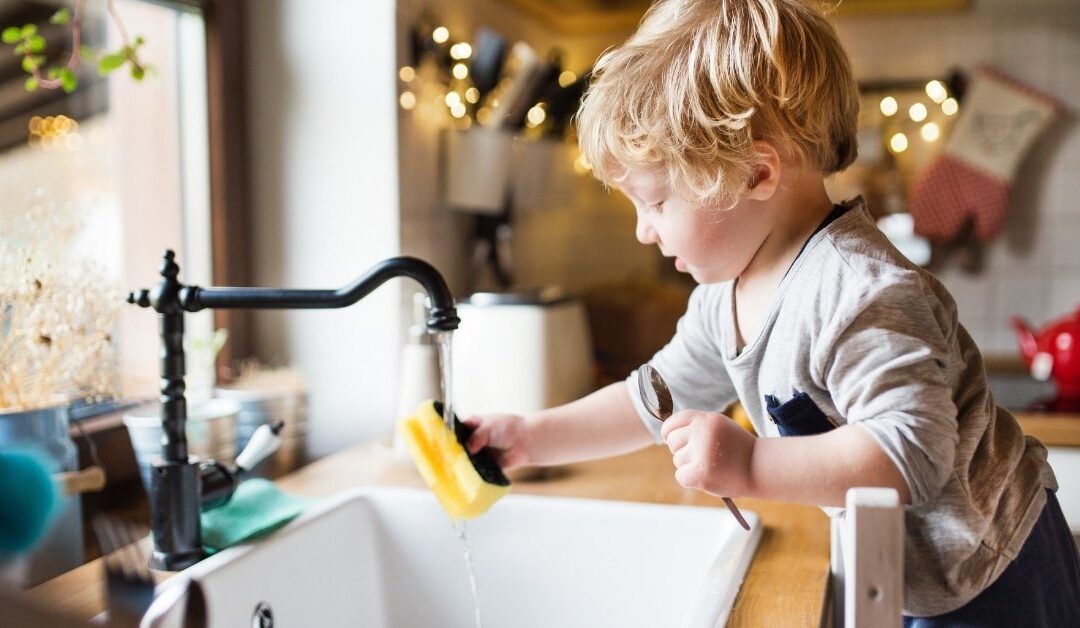Before diving into the fun stuff, let’s understand why getting our children involved in household tasks is so important. Not only does it teach them valuable life skills, but it also fosters a sense of responsibility, teamwork, accomplishment, and independence. Plus, it lightens our parental load – it’s a win-win for everyone!
Making children do housework need not be tedious and does not need to involve shouting matches! In this blog, we’ll give you some ideas and helpful links for making housework fun for kids. From treasure hunts to sticker charts, these ideas will keep them entertained and motivated to help out.
As someone with a degree in marriage and family studies, I took a lot of classes centered around child development and healthy family relationships. Research has shown that children who feel a healthy emotional connection to their parents are more likely to be successful adults. But we can’t spend all day doing fun things to connect with them. So we have to use the every day activities, like chores, to create the connection.
Scholastic suggests motivating your children with a point and reward system when figuring out how to make chores fun for kids. First, create a list of tasks for each child to accomplish so that expectations are clear. When a child completes one of their tasks, they get to place a sticker on the list. Whoever has the most stickers earns the Helper of the Week award.
Another idea: each week, you can appoint someone as “Inspector D. Clutter.” You can give them a plastic badge and a box or laundry basket. That person is charged with collecting items that aren’t where they should be and putting them in “clutter jail” (the box or basket). To get the item back, the owner must perform a task. You can include parents in this rule as well!
AdventureBook.com also contributes helpful ideas on how to make chores fun for kids. One is to put together a playlist of songs your family enjoys, playing it when it’s time to get the job done. You can also pretend that the broom is a microphone while singing along, or the vacuum cleaner is an air guitar. Although this can take a bit longer, if you get the job done while having fun, it can be a win/win situation. From time to time, add other favorite songs to your playlist to pleasantly surprise your kids!
If you don’t have time for this approach, play beat the clock, where each person has a certain time to complete a chore. Set a stopwatch, giving them a reasonable amount of time to get everything done. After you verify how much time is needed, cut off a bit of time next time, turning it into a race.
Although the beat-the-clock concept works well with many tasks, you won’t want to go this route with breakable items in your home. When you notice that your children are missing some spots when cleaning to beat the clock, that’s a sign that they may not be assigned enough time. At that point, we recommend adjusting the timeframe as needed.
Lead by Example
Children learn by example, so leading by demonstrating a positive attitude towards household responsibilities is essential. Let them see you actively engaging in chores without complaint, and be sure to praise their efforts and offer guidance when needed. Providing opportunities for children to learn from their mistakes helps to build their confidence and competence.

